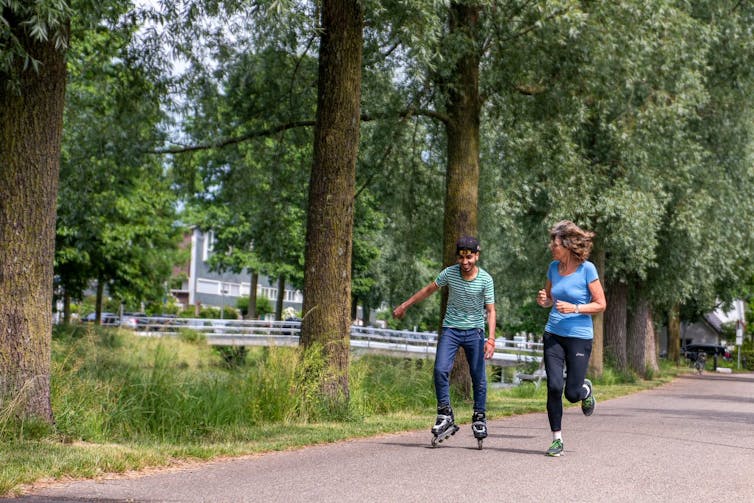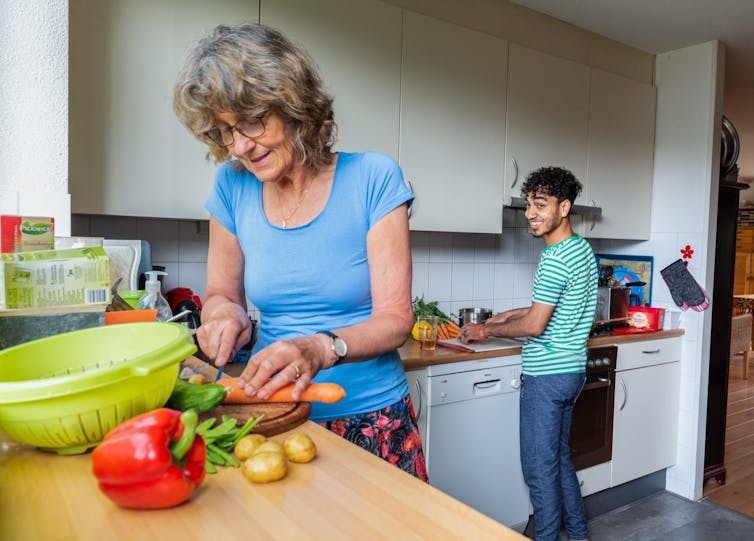The large-scale evacuations from Afghanistan mean Afghan refugees are expected to settle in Europe, the UK and the US in the coming years. Many European countries have struggled with welcoming and integrating refugees, and are in need of new ideas and systems to ease the process.
Resettlement creates challenging situations for both the refugees seeking a new life, and for the communities in which they are placed. While many in these communities will feel sympathy towards refugees, others are afraid of what foreign migrants moving into their towns and villages might mean for their local socioeconomic environment.
While Europe is no stranger to mass migration, recent years have shown signs of social and political struggle in trying to integrate vulnerable people from a different continent, culture, religion and language in host communities. For example, Essex county has offered support for Afghan refugees through temporary accomodation and other support, but far-right groups have started anti-migrant campaigns in protest.
In 2017, following the resettlement of tens of thousands of Syrian refugees in the Netherlands, we conducted a qualitative study of the resettlement and integration process to better understand the experiences of both refugees and host communities. Our findings provide a model for how communities can support the resettlement and integration of Afghan refugees, and ease host communities’ anxieties and perceptions.

Author provided, Author provided
We conducted our study with Takecarebnb, a Dutch nongovernmental organisation that matches refugees looking for temporary (up to three months) accommodation with volunteers who are opening up their homes. A total of 51 hosts and 53 refugee guests participated in our study and shared their experiences with us.
Based on their stories, we found that staying with a local fosters refugee integration. The often used indicators of integration framework suggests ten different elements are key to “successful” integration: housing, employment, health, education, social bridges, social bonds, social links, language and culture, safety and rights and citizenship.
Hosts did not only provide refugees with housing, but also helped them to be closer to educational institutions and potential employers, introduced a network of local people, provided a safe environment, translated and interpreted letters and emails and helped refugees live a normal life.
For example, refugee Jane* said:
Through Takecarebnb, I could find a place to stay in Amsterdam for three months with awesome people, and learned a lot through them. I started from there to know the city and I got my first work.
While staying in a local’s house and becoming part of their life, refugees were immersed in local traditions and culture. In the words of refugee James*:
I wanted to get acquainted with Dutch traditions and habits to gain an insight in the life and the social codes in the Netherlands. I wanted to not learn the Dutch language in an abstract way, but actually, know the history and culture behind the language and its people.

Author provided, Author provided
We found that the main reason staying with a local is so beneficial for refugees’ integration is the role that the hosts play. By supporting refugees and investing time and energy to accommodate their wishes and needs, these hosts show that for integration to be successful, inhabitants of host countries must also adjust to refugees.
As host John* said:
We think that refugees should get a home as soon as possible to enable them to get familiar with the Netherlands and the Dutch language. This goes way faster when they are among other people, instead of in a shelter endlessly.
Benefits for hosts
Hosts indicated that this is not just an investment, but also an enrichment. In the words of one host:
I am convinced that when a host family and a guest are living together so intensively at such a crucial moment in the guest’s life, connectedness and companionship arise.
Hosts indicated that they “became friends for life” with their guest, that their children “now look positively towards refugees”, that their “understanding for people with different ideas has been enlarged” and that they became “even more grateful for everything around me: freedom, family, peace”. Others also said they “learned about a new culture and habits (which also confronts you with your own culture and habits)” and that they gained “more insight into/respect for [refugees’] situation”.
Based on our findings, the Dutch government began a one-year pilot study in 2018 in which Takecarebnb received financial support from the government for every successful match made between host and guest. After a positive evaluation of the pilot, the cooperation between Takecarebnb and the Dutch government has continued indefinitely.
In the UK, the Home Office has announced its intention to resettle 20,000 Afghan refugees in the coming years. We recommend local councils work closely with organisations with a similar mission to Takecarebnb, such as Refugees at Home and City of Sanctuary in order to give refugees and local communities the best chance at successful integration.
Our work with Takecarebnb taught us two key lessons: first, that temporarily hosting refugees by local hosts can foster integration tremendously. And second, that there are ample people willing to help by opening up their homes – they just need a platform that enables them to do so.
*Names have been changed.
![]()
The authors do not work for, consult, own shares in or receive funding from any company or organisation that would benefit from this article, and have disclosed no relevant affiliations beyond their academic appointment.











